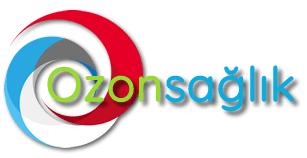Minor Autohemotherapy

What is Minor Autohemotherapy?
Minor autohemotherapy is a smaller-scale version of ozone therapy. In this method, a small amount of blood is drawn from the patient (usually 5-10 ml), mixed with ozone gas, and then injected into the muscle (intramuscular). Minor autohemotherapy is used to support the immune system, alleviate allergic reactions, and reduce local inflammation. The procedure is applied as follows:
- Blood drawing: A small amount of blood (usually 5-10 ml) is drawn from the patient using a sterile syringe.
- Ozone addition: A low dose of ozone gas is added to the drawn blood.
- Intramuscular injection: The ozonated blood is injected into the muscle, usually the hip or arm.
What Are the Benefits of the Minor Application Method?
- Regulates the Immune System:
Injecting a small amount of ozonated blood mildly stimulates the immune system and activates the body’s defense mechanisms. - Reduces Allergic Reactions:
It can alleviate the symptoms of allergic conditions, particularly effective in seasonal allergies. - Has Anti-Inflammatory Effects:
Known for its potential to reduce inflammation, it can be used in conditions like rheumatoid arthritis, joint pain, and other inflammatory diseases. - Provides Detoxification:
By clearing toxins from the body, it contributes to the detoxification process. - Supports Rapid Healing:
It may speed up the healing process for wounds, infections, and skin diseases. - Effective Against Autoimmune Diseases:
It can be beneficial in autoimmune diseases by reducing the overreactions of the immune system.
Who Can Benefit from the Minor Application Method?
- Allergy sufferers: It can be applied to individuals with seasonal or chronic allergies to balance the immune system.
- Autoimmune diseases: It can be helpful in immune-related diseases like lupus and rheumatoid arthritis.
- Inflammatory diseases: Applied to reduce joint and muscle inflammation.
- Skin problems: Used to provide immune support in the treatment of skin diseases or infections.
- Immune system strengthening: It can be used as a general health support for individuals with weak immune systems.
Who Should Not Receive the Minor Application Method?
- People with favism (Glucose-6-phosphate dehydrogenase deficiency): This genetic condition can lead to serious side effects with ozone therapy.
- Pregnant women: Ozone therapy should not be applied during pregnancy as its safety is unproven.
- Patients with severe anemia: Minor autohemotherapy may not be suitable for individuals with severe anemia.
- Those with thyroid disease (Hyperthyroidism): Ozone therapy is not recommended for individuals with thyroid disorders.
- People with bleeding disorders: The treatment should not be applied to patients with bleeding issues.
- Patients with severe chronic diseases: In cases of serious illnesses such as cancer or kidney failure, ozone therapy should only be used under a doctor’s supervision.
